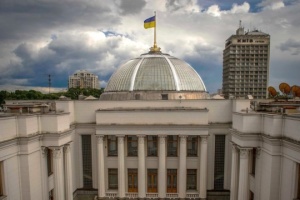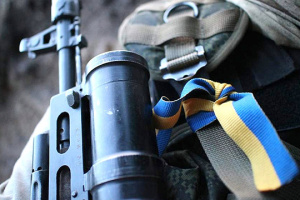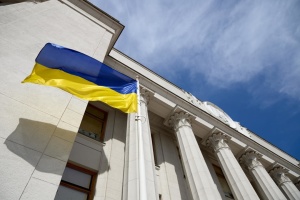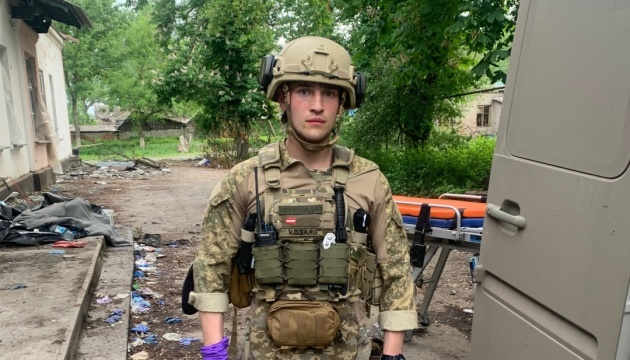
Vakhtang Nagler: My attitude towards Ukraine is shaped by you, Ukrainians
They are very different - volunteers, investors, representatives of the people, not the political class, but the people themselves, people who are so imbued with the pain and courage of Ukraine that even in the third year of the Great War they continue to surprise us with their generosity and attention. We wrote about foreigners with Ukrainian souls here and here.
Not knowing the language, visiting our country from time to time, they have greatly strengthened both the Ukrainian army and Ukrainian families with their participation.
Vakhtang Nagler, a half-Austrian, half-Georgian citizen, who we will talk about below, is a student of international relations at the University of Latvia, only 26 years old. And he is an incredible example of how much a young person who is outraged by the crimes of Putin's Russia can do. It seems that this is what distilled, unadulterated sincerity looks like. And besides, we are all interested in seeing Kyiv and Ukraine through the eyes of this wonderful young man.
We're talking to Vakhtang on Zoom, he's in Latvia right now, and I ask him which language he prefers. And he, a philologist of Slavic languages by training, who until 2022 spoke Russian and Polish in addition to his native German and Georgian, smiles and says: Ukrainian is best, because he has already forgotten Russian
"After the invasion, which terrified me, I realized that I wanted to speak Ukrainian and help Ukraine, so I just started listening to Ukrainian songs and reading your telegram channels, so in two years I learned Ukrainian, which is actually enough to speak," Vakhtang says.
Then he just talks about himself, and the author only supports the conversation with remarks.
- "For you, I can be an Austrian Georgian or a Georgian Austrian. My mother is Georgian, my father is Austrian. I was born in Austria and raised here, but I have very close relations with Georgia. In 2020, after my bachelor's degree, I started working in Vienna for a large Austrian logistics company. My working languages were Polish and Russian at the time. But I fell in love with Ukraine even before the war. My job was to find routes and contractors who were engaged in cargo transportation, and I had partners in Ukraine. So I came with friends from Serbia and Georgia to Kyiv (we wanted to meet somewhere in the middle, if you look at the map) to our then Ukrainian partner (now just a friend) a year before the invasion. And Kyiv conquered me. The people, the nature, the beauty of the city. We swam in the Dnipro River, and you were the place where I first jumped with a parachute...
I was a Russian speaker at the time. I remember when my friend and I asked one of the establishments to play a Russian song. They apologized to us, but said that there was no Russian-language repertoire in the capital of Ukraine. We were a little surprised, but I realized everything very quickly. And I came back to Kyiv as a "Ukrainian," Vakhtang answers my question about how his relationship with Ukraine began.
We move on to the war, and Vakhtang recalls how he turned from a successful manager to a volunteer.
- "I was demonstrating excellent performance in our large company. I could earn as much money in my area as no one had earned in the previous 5 years. Because I am half Austrian, I adapt well, it is our national characteristic. And I know the peculiarities of Ukrainians, how they live and work. After the invasion, which terrified my entire environment, we all started helping Ukraine: bringing in ammunition and cars. My entire work environment was aware of who the aggressor was in this war.
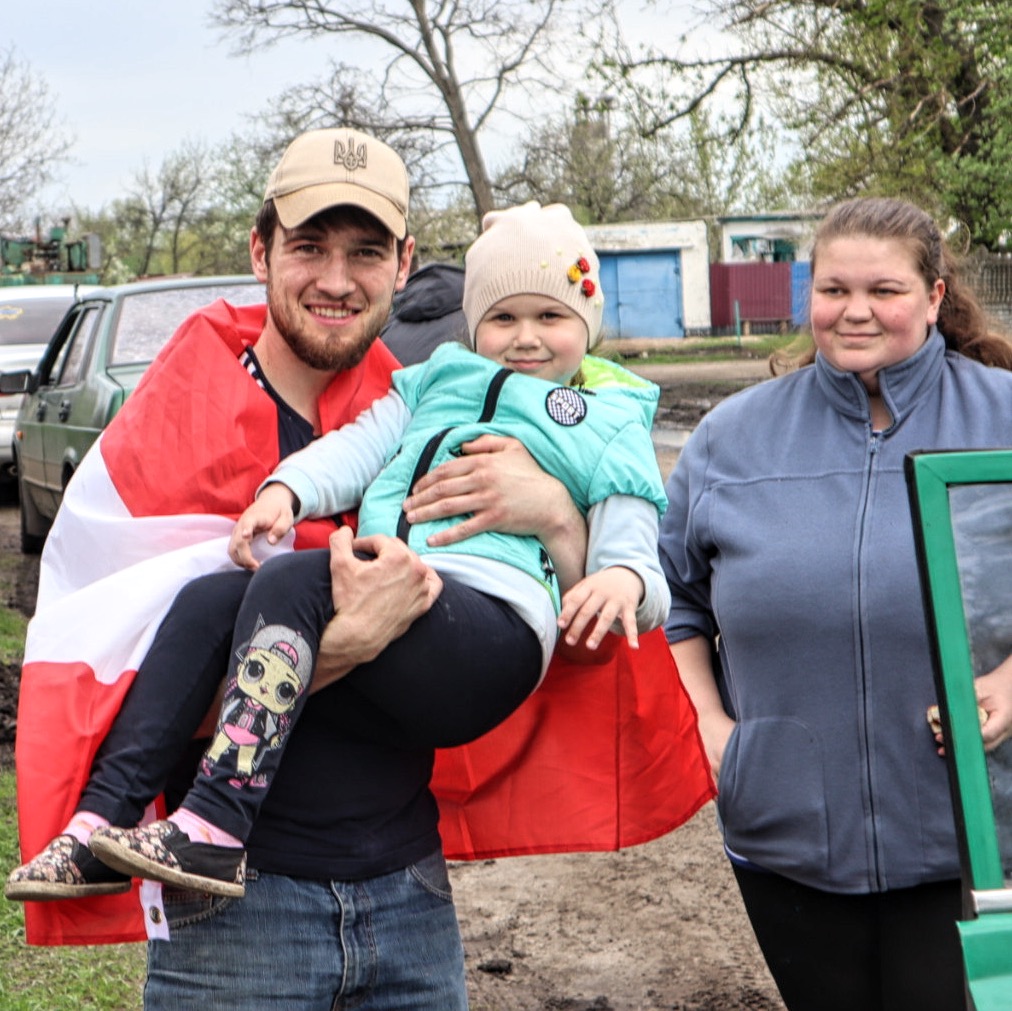
In the first days of the war, I started looking for contacts at home who were helping Ukrainians. I found the Greek Catholic Church of St. Barbara in Vienna. There we packed and repackaged goods, and my colleagues from work found transportation to send them to Ukraine. Austrian Ukrainians were surprised that I came there every day. And soon I quit the company: the head of my department was Russian and we had very different political views... I told him I was taking an unpaid vacation and did not return to the company after that.
We both kept silent. I realized that all our "popular generalizations" about the "bad and immature" young generation of Europeans were not true. Because here in front of me sits a nice guy (like from a TV series about the elite of financial corporations) who could have made a brilliant career, but chose to be with Ukraine, to help it, to share its pain.
Meanwhile, Vakhtang continues
- I moved from Vienna to Innsbruck, where my parents live. The municipality there was looking for a social worker to help refugees. I and another Austrian were hired on a probationary basis. I did something for your people then - I found housing for Ukrainians, helped them with documents. It was a very fruitful month, and you know what? Everyone from this wave of refugees became my friends, incredible people.
As soon as they settled down, they rushed to help Ukraine, some women have husbands in the Armed Forces. And literally all of my friends dreamed of returning to Ukraine. You know, our attitude towards Ukraine is also shaped by you, Ukrainians, by the way you love it, how you glorify it, how you are ready to defend it. Our assistance is fueled by your love and by what Ukrainians themselves have done for their homeland.
It was an interesting experience, but for some reason I did not pass the probationary period. My employers preferred someone else. They did not explain to me why. But I continued to volunteer.
Then, in 2022, I started working with a public organization, a foundation that helps civilians and also accompanies supplies from Austria, beds for hospitals, and medicines.
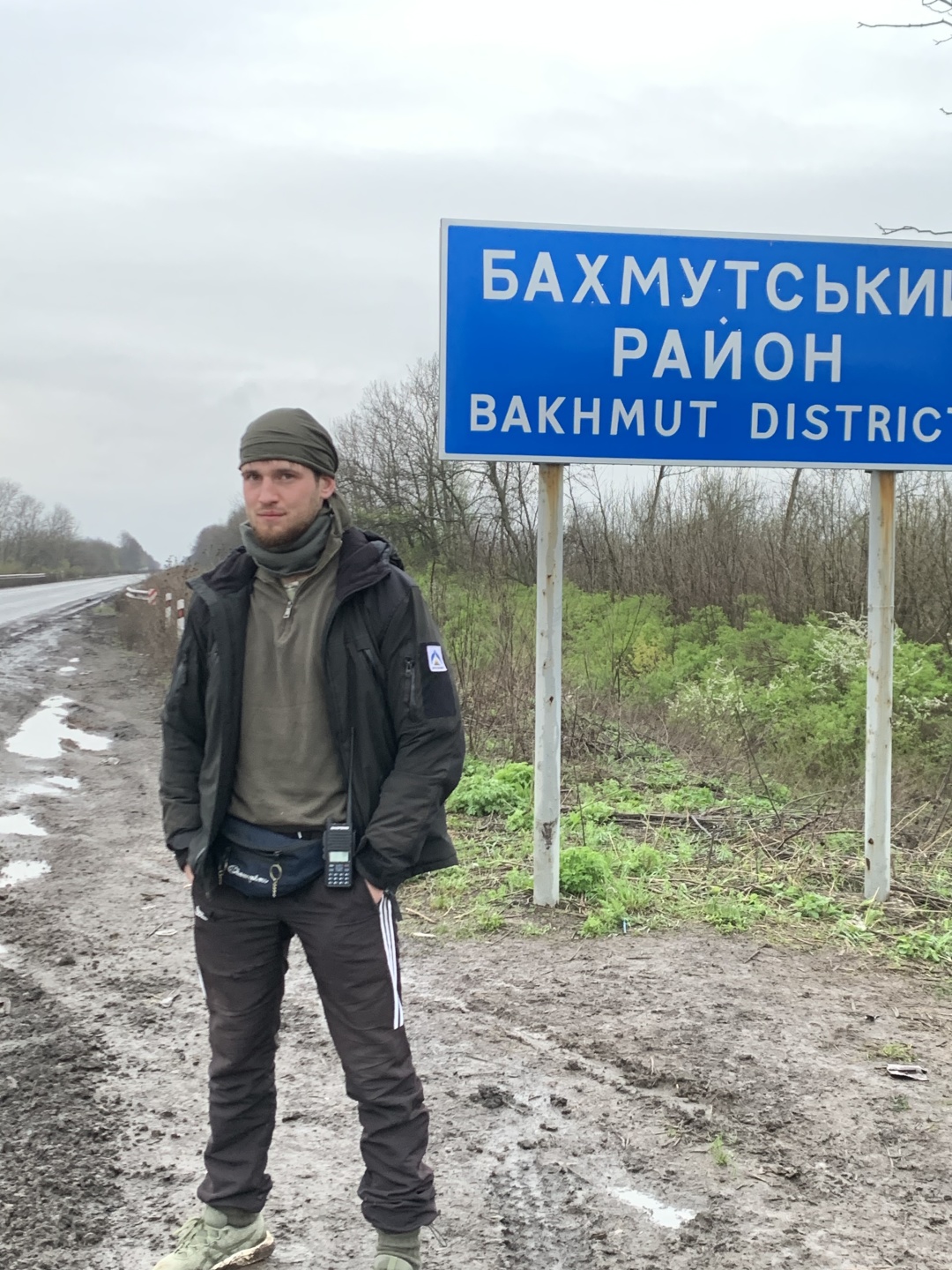
In 2022, I went to the war-torn Ukraine itself. In June 2022, I went for the first time as an interpreter to accompany the aid. First it was Kyiv, then in August - Kharkiv region, then Donetsk region. When it comes to Kyiv and Kharkiv, young people from big cities mostly speak English, while in small towns people don't. So I helped them to establish connections with donors.
Every trip I made to Ukraine opened it up to me more and more. I have never had to stay in a hotel. Everywhere I went I was met by friends or strangers who became friends. My desire to help Ukraine was further strengthened when, during a raid on Donbas, the Russians fired on a humanitarian convoy of the volunteer organization Road to Relief. Spaniard Emma Higual and Canadian Anthony Ignat were killed. They were my friends, we met in Donbas, they were engaged in evacuation and medical assistance to civilians in the war zone, and I had to work with them. They ran a mobile clinic: they went to remote villages where there was no longer any infrastructure, delivered aid there, brought doctors or took civilians to the nearest hospital. Emma and Anthony died on the road, near Chasovyi Yar. I learned about their deaths on my birthday...
Each of my two trips took two weeks. I was both an interpreter and a driver, and sometimes it was a medical evacuation. I did my conscript service in the Austrian army, so I could explain something from our experience. I was not under fire in Donbas, but I worked in the range of Russian artillery. There are few Austrian weapons in Ukraine, and they come to the war... through Australia. In my opinion, it is not very suitable for your combat missions and your conditions, better than American. In general, I like to work with rifles, weapons are my subject. But Austria strictly monitors the actions of Austrian citizens in the war-torn Ukraine, so when my photo was published in the media, I even had to give an explanation to Austrian law enforcement.
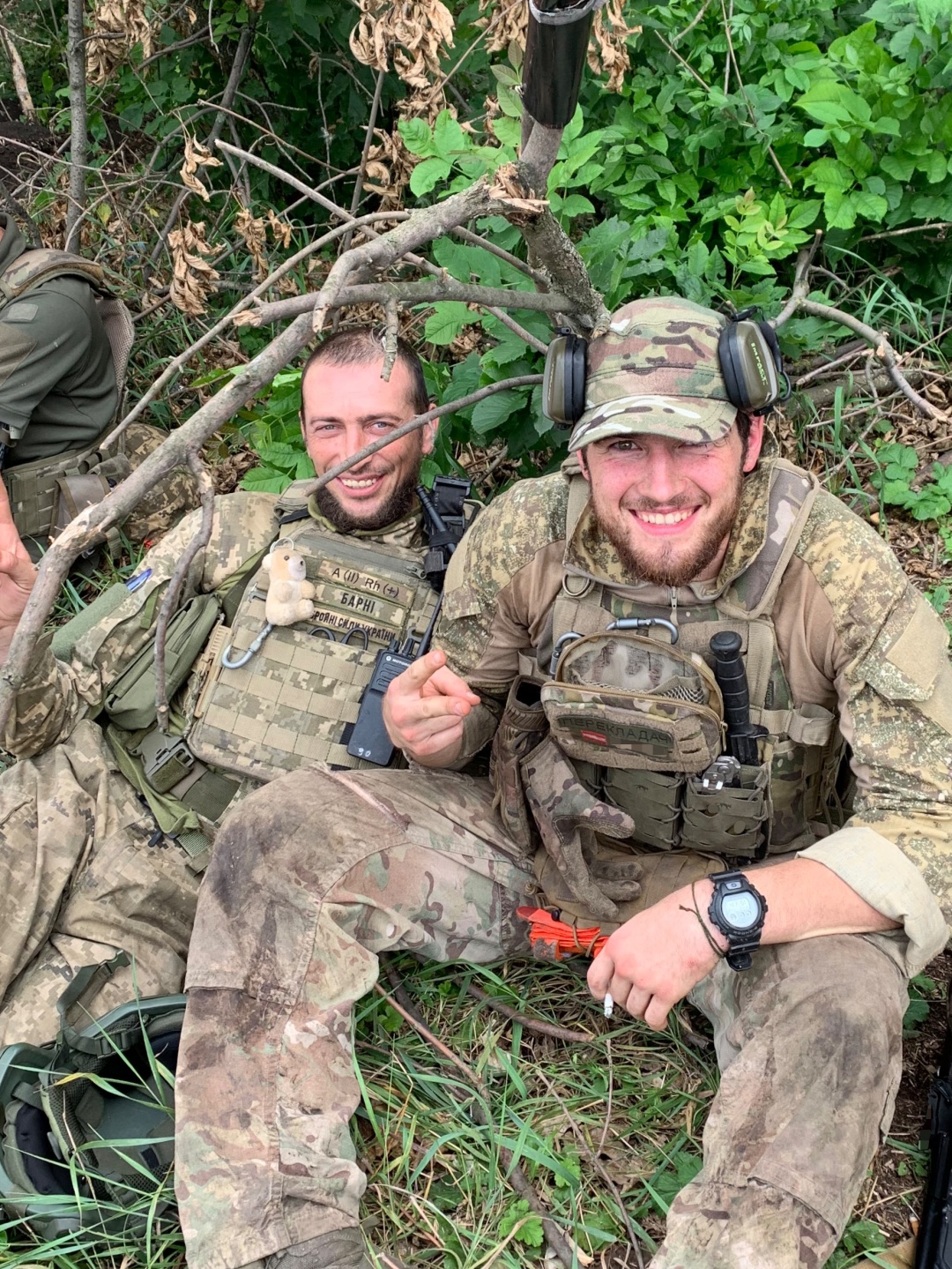
Austria is a neutral country that is not a member of NATO. It was perceived as a kind of "turnstile" between the West and the East, a "corridor" for spies. Vienna's current policy toward Russia before the invasion was quite complimentary. We all know about Austrian contracts with Gazprom.
In 2024, Austrian attitudes towards Ukraine changed for the better, but there is a specific point... Not only rich Russians had their "nests" in Austria, after the invasion, politicians and businessmen from Ukraine also fled to Vienna. And there, it happened that they demonstratively lived "in the high life" and drove premium cars. These people, of course, are different from the Ukrainian nation as a whole. But such stories are not good for Ukraine.
In 2023, I wanted to move to Ukraine permanently, and I wanted to focus on helping the military. Because Ukraine's prospects are only as good as its Armed Forces' ability to defend the country. Moreover, in the fall of 2022, I felt that the amount of our aid was decreasing... But my mother had survived the war in Georgia, lost loved ones there, and when she learned about my plan, she was hospitalized with serious neurological symptoms. I really wanted to live and fight in Ukraine, but I realized that I could not sacrifice my mother.
I decided to continue my studies in International Relations because I understand that after Ukraine's victory, much will change in the world, much will have to be built anew. International relations are dialogues between entire countries and nations, and this will be important. I chose a university in the Baltic States because I know their attitude towards Ukraine and the war in general. That's why I chose Riga. Here, at the university where I study, there is a medical faculty and there are doctors who have practiced in Ukraine. I have a Ukrainian friend who is studying medicine in Riga, both her parents are trauma surgeons. And we are planning to hold a small seminar to share our experience, where I will talk about medical evacuation in Ukraine, and she will talk about tactical medicine.
I also have a dream, even a plan, to come back to Ukraine.
Yaroslava Mishchenko, Kyiv
Photos provided by the interviewee

